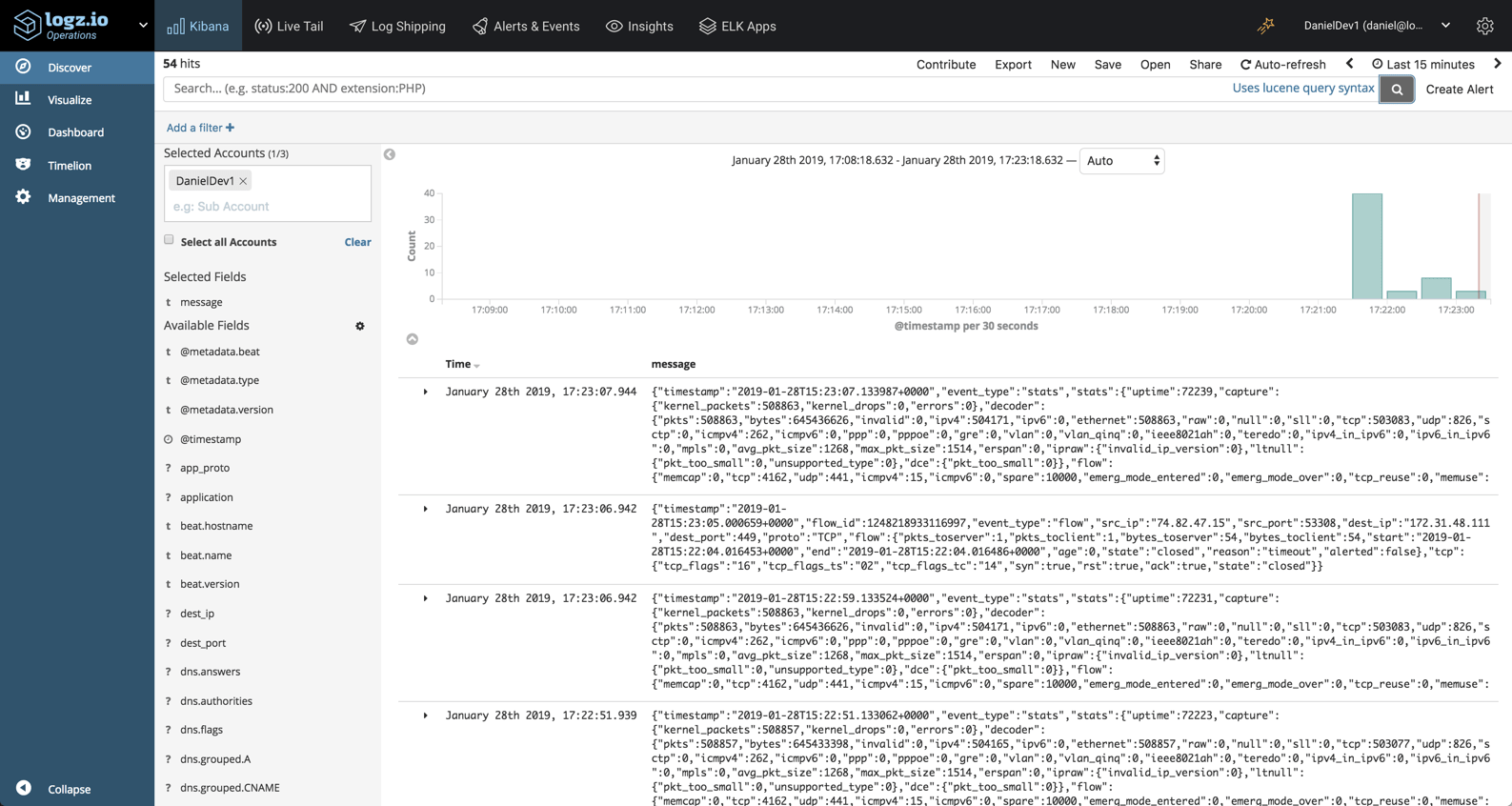

The Log4j2 JSONLayout adds a timestamp field named timeMillis which is UNIX time (seconds since epoch) formatted. The compact and eventEol settings are necessary for Filebeat to be able to parse the log file as JSON. Thus, if an output is blocked, Filebeat can close the reader and avoid keeping too many files open. It comes with various improvements to the existing input: Checking of close options happens out of band. It is the new, improved alternative to the log input. Scroll further down to where all the existing appenders are defined and add your new JSON appender: # JSON log appender Use the filestream input to read lines from active log files. In order to enable JSON logging in OH, edit the etc/.cfg file (usually in /var/lib/openhab2) and amend the Root Logger section near the top to add the new appender ref: # Root logger We’re going to configure OH to emit a JSON log file which will then be picked up by Filebeat and sent off directly to Elasticsearch. The guide assumes you already installed Elasticsearch (+ Kibana) as well as Filebeat. For Document Form setting, you can select one of Single document, Document per line and Array of documents types.

The only way to set this value is by adding name: xxxx to your filebeat.yml. These settings can be found under the JSON settings accordion in the Source Options tab. module: apache2 access: enabled: false error: enabled: true prospector: fields: vhost: fieldsunderroot: true However you cannot override beat.name by using fields. The following steps have been tested on OpenHab 2.4 and the 7.3 version of the Elastic stack (according to the documentation this should work all the way back to 5.0 though). Using a JSON dataset as a source in your data flow allows you to set five additional settings.

#Data under root json filebeats how to#
There already are a couple of great guides on how to set this up using a combination of Logstash and a Log4j2 socket appender ( here and here) however I decided on using Filebeat instead for two reasons: The purpose is purely viewing application logs rather than analyzing the event logs. This tutorial walks you through setting up OpenHab, Filebeat and Elasticsearch to enable viewing OpenHab logs in Kibana.


 0 kommentar(er)
0 kommentar(er)
